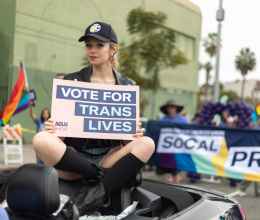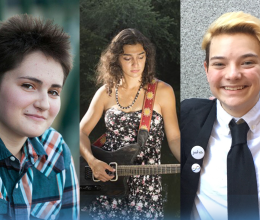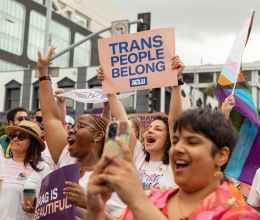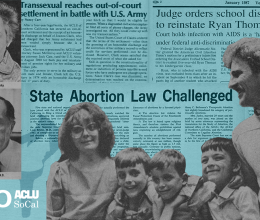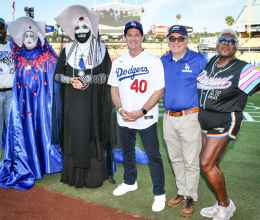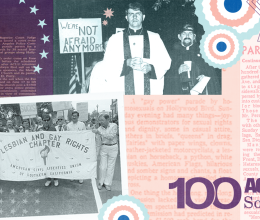The LGBTQ Rights movement burst into the American public consciousness more than 50 years ago, when people living at the intersections of race, poverty, and criminalization fought back against police brutality – not only at the Stonewall Inn, but also here in California at the Black Cat Café and Compton Cafeteria. Many of those pioneering activists were women working in the sex trade, including movement mothers Sylvia Rivera and Marsha P. Johnson. Today, LGBTQ people have made tremendous progress toward formal legal equality, but our liberation is far from complete. Police treatment of people selling sex or perceived as doing so continues to be a major problem for our community.
The ACLU has long opposed the criminalization of sex work because we believe the Constitution protects the rights of consenting adults to engage in private, consensual sexual activity. In other words, the Constitution protects an adult’s decision to engage in sexual activity with another adult, whether the intimacy is built on love or desire, or done in exchange for money or other things of value like shelter or food. At a minimum, restrictions on an individual’s right to engage in private consensual sex must receive a high level of constitutional scrutiny before they can be allowed to stand.
Sex work laws are highly problematic because they are disproportionately enforced against transgender people, people of color, LGBTQ young people, gay men, and women who sell sex (as opposed to the men who buy it from them). Further, police profiling makes life more difficult for people in all these groups, whether or not they have ever engaged in sex work.
In 2015, the Erotic Service Providers Legal, Education and Research Project (ESPLERP) filed a lawsuit challenging the constitutionality of California’s laws criminalizing sex work. The ACLU of SoCal and ACLU of NorCal, together with a broad coalition of 17 other organizations, filed a friend-of-the-court brief supporting ESPLERP's position. The Ninth Circuit Court of Appeals will be hearing argument in the case on Thursday, October 19. We’re excited not only to tune in, but also to treat this moment as a spark for conversations outside of court about sex work, the distinction between sex work and sex trafficking, “prostitution” laws, and strategies for reducing the hurtful impacts of these laws on LGBTQ people, women, and people of color.
On Thursday, October 19, ACLU SoCal LGBTQ Rights Staff Attorney Amanda Goad (@AGoadEsq) will be live-tweeting the Ninth Circuit argument (which will be live-streamed) beginning at approximately 10:15 a.m PT.
At noon, LGBTQ Community Engagement and Policy Advocate Adrian Acencion Martinez will host a Reddit “Ask Me Anything” forum on sex work and related issues, joined by representatives of some of the other groups who joined the ACLU’s friend-of-the-court brief. Please join us for this important discussion!

